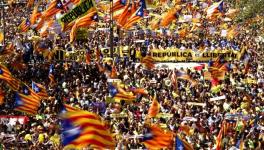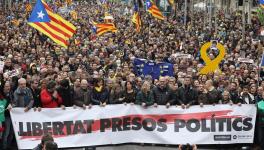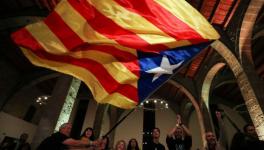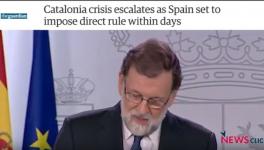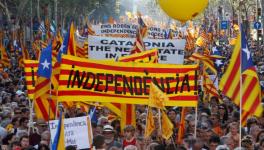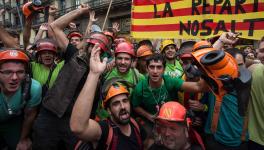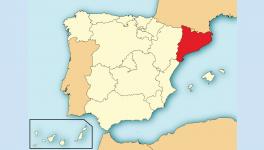Catalan President Puts Ball in Madrid’s Court
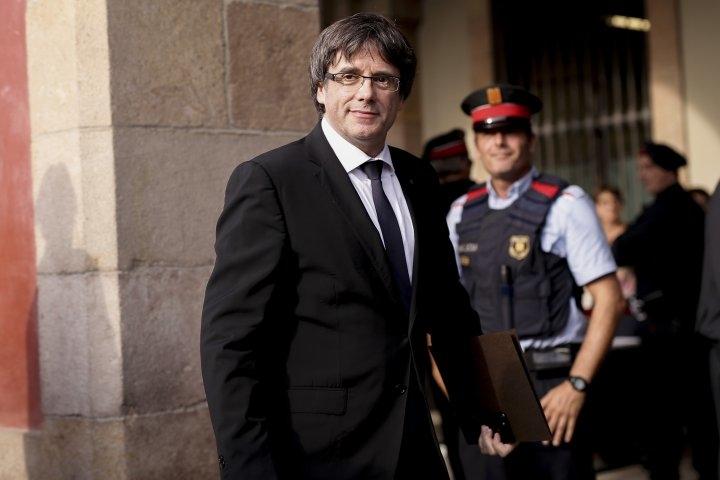
Did he or did he not – the world audiences went into a confusion after the much anticipated speech by Catalonia’s President Carles Puigdemont regarding the region’s declaration of independence. The regional parliament’s session which began after a delay of one hour witnessed Puigdemont declaring independence from Spain, before immediately suspending the process of implementation. Puigdemont said that the step to suspend the implementation of the declaration was to give space to dialogue with leaders in Madrid.
“I assume the mandate of the people for Catalonia to become an independent state in the shape of a republic,” Puigdemont said, and immediately took a dramatic turn adding that the government would “ask Parliament to suspend the effects of the declaration of independence so that in the coming weeks we can undertake a dialogue.”
The referendum of October 1 had witnessed two million Catalans voting in favour of the region breaking away from Spain and forming an independent republic. The polling process witnessed brutal repression by the Spanish police injuring more than 800 Catalans. Puigdemont had earlier said that his government has been left with no choice but to proceed unilaterally as repeated attempts to discuss the matter with the Madrid government have been ignored.
Sebastian Faber, Professor of Hispanic Studies at Oberlin College argues that the future will depend a lot upon how Madrid will respond. “Puigdemont looks like he is opening up room for negotiation, and if Madrid now insists on its zero tolerance response, it might again lose an image war,” said Faber.
Although many in Catalonia are confused or disappointed after the speech, the ball is effectively now in Madrid’s court on how to move forward. It is understood that hours before the declaration of independence, Donald Tusk, the president of the European council, appealed to Puigdemont to step back from a unilateral declaration of independence and to begin dialogue with the Spanish government.
Continuing his hardline policy, Spanish Prime Minister Rajoy had earlier threatened the invocation of Article 155 of the 1978 constitution if the regional government of Catalonia moved towards independence. Article 155 of the 1978 Spanish constitution allows the central government to take over the government of Catalonia, currently an autonomous region of Spain.
“I just don't see him [Spanish PM Rajoy] or his party entertaining any sort of dialogue no matter how limited it would be,” notes Nando Vila, host and producer of Fusion TV.
Meanwhile, the Spanish Foreign Minister Alfonso Dastis has called Puigdemont’s speech a ‘trick’. Prime Minister Rajoy will appear before Parliament later on Wednesday to discuss the referendum and his government’s next move.
Disclaimer: The views expressed here are the author's personal views, and do not necessarily represent the views of Newsclick.
Get the latest reports & analysis with people's perspective on Protests, movements & deep analytical videos, discussions of the current affairs in your Telegram app. Subscribe to NewsClick's Telegram channel & get Real-Time updates on stories, as they get published on our website.










